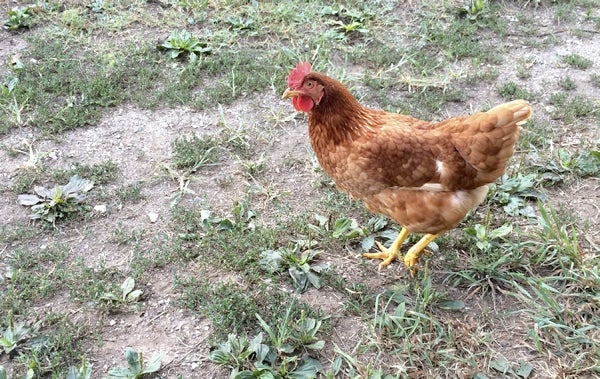Danelle Cutting: Take precautions against avian flu
Published 12:02 am Friday, August 14, 2015

- A free range chicken. Avian flu has not come to North Carolina, but may be transmitted by other migrating birds.
As most of you know, Cooperative Extension is going through some structural changes and due to some of those changes many of the surrounding counties are without livestock and horticulture agents.
The counties that have livestock and horticulture agents have taken on additional responsibilities from counties that have no agent. That being said, I am now the only agriculture agent in the office and that is when everything gets crazy, with the fair coming up and then this highly pathogenic avian influenza or HPAI is breathing down our necks.
I wanted to write the article about HPAI because many people have not yet heard about it and some are very concerned of what it might mean.
Many of us have backyard poultry and this has the potential to be very devastating to our state. Currently this disease has killed 50 million birds.
To put that in more perspective, that is almost the population of California and Texas combined, or the entire population of North Carolina five times over.
I say this, because this is something that needs to be taken seriously and there are a few preparations one can make to help protect their own flocks. If you are wondering whether you might be at risk of the avian influenza, it should be noted, that the types of avian influenza in the U.S. have not affected humans.
As of now, everyone who has any poultry, whether it is one or many, has to register with the North Carolina Department of Agriculture. You can register by going to this link: http://www.ncagr.gov/ncfarmid/index.htm, or visiting your local Cooperative Extension office.
This needs to be done as soon as possible. Also, there will be no bird shows or sales after Aug. 15 and will not resume till Jan. 15, 2016.
Currently HPAI has not been found in North Carolina, but since waterfowl are carriers it is expected to arrive in early September during their fall migration.
It is important to keep your poultry separate from any waterfowl during the migration period till next year. Do not have any poultry near ponds or surface water and keep them contained from any wild birds.
Be cautious about working with your poultry after hunting or fishing (such as duck, geese or dove hunting) since the pathogen is spread through the feces that can be spread by driving your vehicle from your hunting grounds to your poultry.
Wear different shoes when working with the poultry; do not use the same shoes when purchasing feed at the stores; and if you have tame waterfowl, it is best to separate them from your chickens, guineas and turkeys.
If your poultry are showing signs of sneezing, difficulty breathing and sudden death within 24 hours of the symptoms, you need to contact the NCDA & CS animal disease diagnostic labs by visiting this link: http://www.ncagr.gov/vet/ncvdl/.
If there is positive ID of the HPAI near your area, your flock may be quarantined, but there are no depopulation methods currently in procedure, just routine checks.
The take home from this today is to register your flock (it is free), protect your birds and use common sense to reduce the pathogen. If you would like more information on the highly pathogenic avian influenza, please visit http://www.ncagr.gov/avianflu/, or call your local Cooperative Extension agent, Danelle Cutting, at 704-216-8970.




